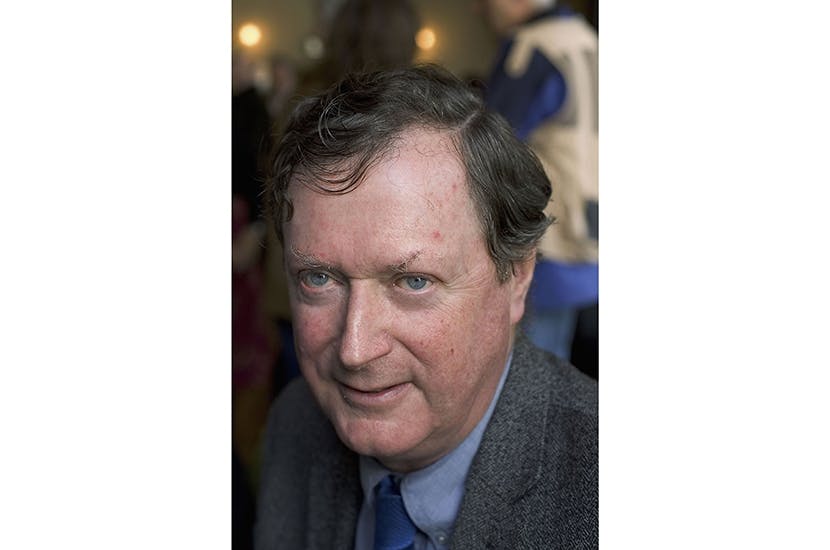Have you heard of champing? Neither had I. Turns out it’s camping in a field beside a deserted church. When it rains, you abandon your flimsy tent and instead bed down in the hushed aisles. At the beginning of Ferdinand Mount’s new novel, Making Nice, Dickie Pentecost and his wife Jane, together with their daughters Flo and Lucy, are doing just that. In the morning they meet fellow champer Ethel, short for Ethelbert, a bewitching man with stony eyes and sticking-up hair. ‘Ethel,’ says Dickie. ‘I suppose they could have shortened it to Bert instead.’
After losing his job as the diplomatic editor of a national newspaper (‘Who needs diplomatic briefings on Chatham House Terms when it’s all out on social media and the foreign secretary himself is tweeting like a bloody blue tit?’), Dickie is hired as director of public affairs at Ethel’s dodgy PR firm Making Nice. From Osmotherley House, also known as Smothers, Ethel and his equally eccentric gang are seeking to engineer a paradigm shift:
‘You see, Dickie, capitalism may be the only game left in town, but it’s not a game people like playing much […] the ambition is to transform the System into a game you can’t help falling in love with.’
And so begins Dickie’s downward spiral into the dubious world of public relations. Mesmerized by Ethel, he embarks on a series of mad assignments, including raising the philanthropic profile of a Greek billionaire with ‘a way to go on the Reputation Journey’. He’s sent to Africa to inject legitimacy into Julius Afu’s election campaign — ‘quite frankly, having a Brit as our campaign director is the ultimate cred boost’ — and to Chicago to act as principal political strategist to Jerry Faldo, a Republican senator. There’s a lot of data-mining and message-seeding. All this before being hoodwinked into ghostwriting the autobiography of an obnoxious politician of sorts.
Making Nice is at times hard to read; that is, it’s hard to witness Dickie do as Ethel says, again and again, shuffling any doubts to the back of his mind. When the 15-year-old Flo gets involved with Ethel, both professionally and personally, and her baffled parents keep calm and carry on, it’s barely believable. The more entwined the pair become, the more Dickie tells himself that he’s enduring his job for his daughter’s sake and not just because he’s too weak to take a stand. But as he admits early on: ‘You could say I was hooked, though hooked to what was harder to say.’
It’s clear that Mount, a heavyweight who wrote the book during lockdown and drew on his own experience as head of the No. 10 Policy Unit under Margaret Thatcher, is having fun with Making Nice. Dickie’s asides about Jane, a somewhat severe oncologist, are characteristically droll: ‘She is not the first person I would choose to tell me that from now on it’s palliative care only.’ At times, the firm’s clients slip into caricature — the politician of sorts ‘bursting out of his houndstooth jacket, regimental bow tie twirling over his striped shirt’ and cooing ‘bloody marvelous’ — but their absurdity only underlines the absurdity of the enterprise.
It’s an enterprise that Mount captures with a healthy dose of satire. And yet, at Making Nice’s heart is a serious lesson about the fine line between success and scandal, truth and lies. It’s a line that, once crossed, can leave you, as it does Dickie, with:
‘an almost physical sense of loss, as when you wake up to a scam or pat your hip pocket to find your wallet gone after a stranger bumps into you and apologizes with the utmost courtesy.’
This article was originally published in The Spectator’s UK magazine. Subscribe to the World edition here.

























